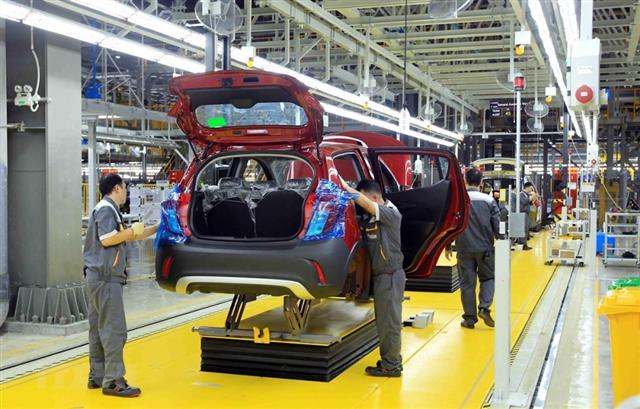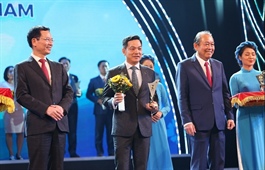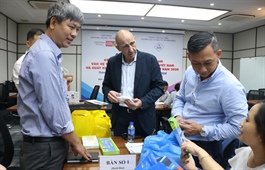Vietnam seeks to steer clear of rivalries threatening global trading system
Vietnam seeks to steer clear of rivalries threatening global trading system
New trends and developments in the world economy, and specifically challenges to the global trading system, are affecting multilateral cooperation in general, and Vietnam’s international economic integration in particular. This was one of the issues tackled at the mid-November summit of Southeast Asian leaders, chaired by Vietnam.

Vietnam’s key exports may face trade remedy measures
|
Protectionism and disputes
The Association of Southeast Asian Nations (ASEAN) has so far not been “drawn into the maelstroms” of rising rivalries and challenges to the international multilateral system, Vietnamese Prime Minister Nguyen Xuan Phuc said in his opening remarks at the 37th ASEAN Summit in Hanoi, which was held virtually.
However, experts and analysts are warning that the multilateral trading system and some regional economic linkages are facing growing difficulties. There have been no significant changes to the Doha Development Agenda on reforming the international trading system, while some organizations and multilateral forums such as the World Trade Organization (WTO), the United Nations (UN), the Asia-Pacific Economic Cooperation (APEC), the Group of Twenty (G20), and the Group of Seven (G7) have faced difficulties in finding a common voice. In addition, the WTO has also failed to deal with important trade-related issues, such as food security, climate change and global trade imbalances.
Protectionism has emerged more clearly. Measures to limit trade deficits are used more frequently, while trade conflicts between key economies tend to increase. In particular, the US-China trade war has directly affected some economies and the spread of the Covid-19 pandemic has caused disruption in supply chains.
Although the Trade Facilitation Agreement (TFA) went into effect in 2017, the rate of implementation commitments remains low. Trade disputes between key economies have become more frequent and disturbing than ever. Dispute settlement is no longer a bilateral exchange and negotiation, but a legal action. Although the WTO has participated in resolving trade disagreements between key economies, it has different views on the role and principles of this organization. Therefore, WTO reform has become one of the biggest concerns.
The 2018 failure of APEC leaders to agree on a joint statement in Port Moresby and the postponement of the 2019 APEC Summit in Chile were partly due to the lack of consensus about continued support for the multilateral trading system. Without further determination and frank discussions, APEC member economies may continue to find it difficult to realize the Bogor goals and build the post-2020 APEC vision.
The Asia-Pacific region remains the most dynamic in promoting economic cooperation and integration. However, geostrategic competition between key economies has affected the negotiation of free trade agreements, posing difficulties for developing countries.
Opportunities and challenges
With the effect of new-generation free trade agreements, such as the Comprehensive and Progressive Agreement for Trans-Pacific Partnership (CPTPP) and the EU-Vietnam Free Trade Agreement (EVFTA), Vietnam is able to access additional export markets, boosting exports and promoting economic growth. But these developments also pose many challenges to Vietnam, one of the most open economies to international trade in Asia. Difficulties include promoting economic growth while maintaining macroeconomic stability in the context of uncertain global trade; declining global GDP growth due to the US-China trade war and the spread of the Covid-19 pandemic. Therefore, Vietnam needs to devise flexible response policies to overcome an economic slowdown.
Cross-border e-commerce has become more common, with the attendant risk of cyber attacks. In addition, Vietnam needs to continue promoting institutional and policy improvements in order to enhance the effectiveness of FDI attraction, focusing on project quality, efficiency and environmental impact. Priority must be given to projects using modern technologies and management methods that help Vietnam participate in global manufacturing and supply chains.
With the impact of the US-China trade war and the Covid-19 pandemic, Vietnam’s key exporters are concerned about increased investigations and application of trade remedies, especially over the origin of raw materials.
To make the most of opportunities and overcome challenges, Vietnam also needs to raise awareness and improve competitiveness of the business community.





















